Top 8 Health Benefits of Cherries
This beautiful red fruit has a terrific combination of sweet and sour flavors and gives the ideal splash of color to your sweets. Cherries can be eaten fresh ... read more...or in several dishes, including cakes, tarts, pies, and cheesecakes. They make an excellent addition to yogurt or morning cereal. However, few people are aware that this delightful fruit contains various health-promoting properties. Let's discover the best health benefits of cherries.
-
Cherries are little stone fruits with a wide range of hues and tastes. There are two types of cherry: tart cherries (Prunus cerasus L.) and sweet cherries (Prunus avium L.). Their hues range from yellow to a deep blackish-red. All types are extremely healthy, and abundant in fiber, vitamins, and minerals.
One cup (154 grams) of sweet, raw, pitted cherries provides:
- Calories: 97
- Protein: 2 grams
- Carbs: 25 grams
- Fiber: 3 grams
- Vitamin C: 18% of the daily value (DV)
- Potassium: 10% of the DV
- Copper: 5% of the DV
- Manganese: 5% of the DV
These nutrients, notably fiber, vitamin C, and potassium, provide several health benefits. Vitamin C is necessary for the immune system and skin health, whereas potassium is required for muscular contraction, neuron function, blood pressure management, and a variety of other vital biological activities. Cherries are also high in fiber, which supports digestive health by feeding beneficial gut flora and improving bowel regularity.

Packed with nutrients 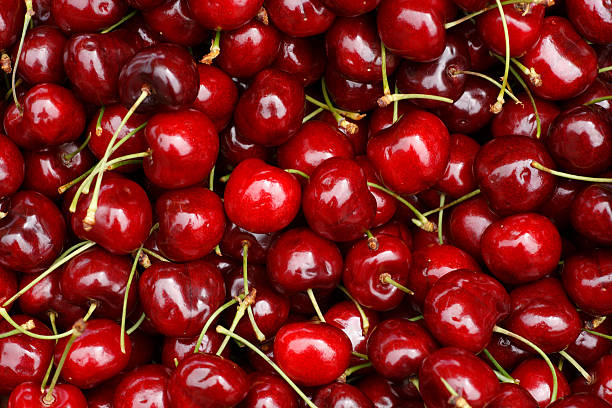
Packed with nutrients -
Cherry's high concentration of plant components may be responsible for the fruit's numerous health advantages. Though the amount and kind of antioxidants and anti-inflammatory chemicals vary according to the variety, all cherries are high in antioxidants and anti-inflammatory compounds. This high antioxidant concentration may aid in the fight against oxidative stress, a condition associated with a variety of chronic illnesses and premature aging. For instance, one analysis discovered that consuming cherries successfully lowered inflammation in 11 of 16 trials and oxidative stress indicators in 8 of 10 studies.
Cherries are particularly high in polyphenols, a class of plant compounds that aid in the prevention of cellular damage, the reduction of inflammation, and the promotion of general health. In fact, polyphenol-rich diets may protect against a variety of chronic diseases, including heart disease, diabetes, cognitive decline, and some malignancies. These stone fruits also feature carotenoid pigments such as beta-carotene and vitamin C, which have anti-inflammatory and antioxidant qualities.
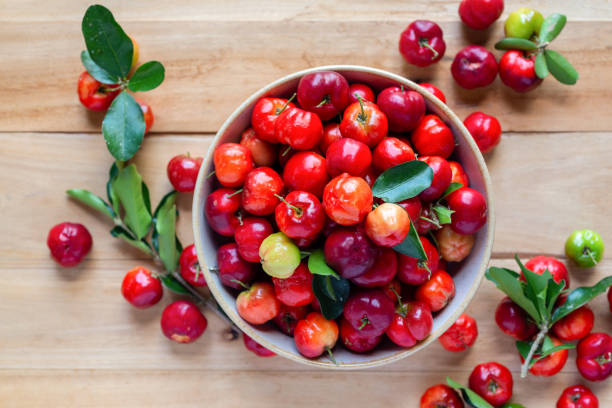
Rich in antioxidants and anti-inflammatory compounds 
Rich in antioxidants and anti-inflammatory compounds -
According to research, the anti-inflammatory and antioxidant substances found in cherries may aid in the relief of exercise-induced muscular soreness, injury, and inflammation. Tart cherries and their juice appear to be more beneficial than sweet cherries and juice, yet both may benefit athletes. In top athletes such as cyclists and marathon runners, tart cherry juice and concentrate have been shown to expedite muscle healing, reduce exercise-induced muscular soreness, and prevent strength loss.
Furthermore, some research shows that cherry products may improve workout performance. A study of 27 endurance runners found that those who received 480 mg of powdered tart cherries daily for 10 days before a half-marathon had 13 percent quicker race times and less muscle discomfort than the placebo group. Though most research on the relationship between cherries and exercise includes trained athletes, tart cherry juice may also help non-athletes. These findings, while encouraging, are related to concentrated cherry products such as juice and powder. It's unknown how many fresh cherries you'd need to consume to have the same benefits.

Can boost exercise recovery 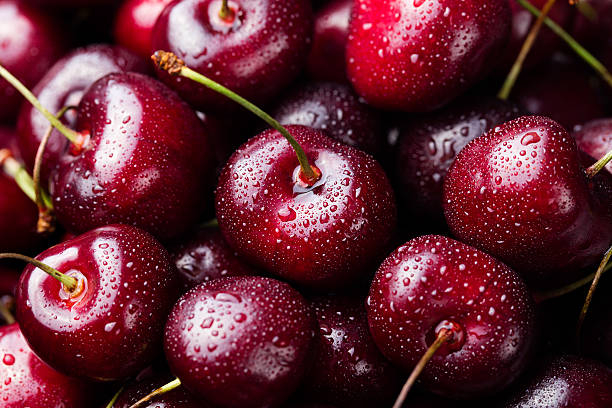
Can boost exercise recovery -
Consuming more nutrient-dense fruits, such as cherries, is a delightful approach to protect your heart. Many studies demonstrate that eating fruits is related to a lower risk of heart disease. Cherries are especially advantageous in this area since they are high in minerals and substances are known to improve heart function, such as potassium and polyphenol antioxidants.
One cup (154 grams) of pitted, sweet cherries contains 10% of the daily need for potassium, a mineral that is necessary for heart health. It is required for a normal heartbeat and aids in the removal of excess sodium from the body, hence controlling blood pressure. This is why increased potassium consumption has been linked to a lower risk of heart disease and stroke. Furthermore, cherries are high in polyphenol antioxidants such as anthocyanins, flavonols, and catechins, which may help keep your heart healthy by preventing cellular damage and lowering inflammation.

May benefit heart health 
May benefit heart health -
Cherries may help lessen the symptoms of arthritis and gout, a kind of arthritis caused by an accumulation of uric acid in your joints, which can cause significant swelling, inflammation, and discomfort. Many studies demonstrate that cherries assist to reduce inflammation and oxidative stress by decreasing inflammatory proteins, which can help alleviate arthritis symptoms. Furthermore, they can lower uric acid levels in the body, making them very useful for patients suffering from gout.
A study of ten women discovered that consuming two servings (10 ounces or 280 grams) of sweet cherries following overnight fast reduced levels of the inflammatory marker C-reactive protein (CRP) and dramatically reduced uric acid levels five hours later. Another research of 633 patients with gout found that those who ate fresh cherries for two days had 35% fewer gout episodes than those who did not. Furthermore, the study found that when cherries were coupled with the gout medicine allopurinol, gout episodes were 75% less frequent than when neither cherries nor allopurinol was ingested.
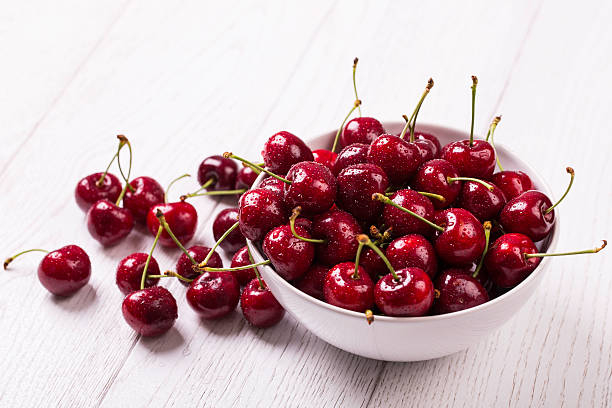
May improve symptoms of arthritis and gout 
May improve symptoms of arthritis and gout -
Consuming cherries or drinking sour cherry juice may help you sleep better. The fruit's high concentration of plant chemicals may be responsible for its sleep-promoting properties. Cherries also contain melatonin, a chemical that aids in the regulation of your sleep-wake cycle. A study of 20 persons found that those who drank sour cherry juice concentrate for 7 days had significantly higher melatonin levels, sleep duration, and sleep quality than those who drank a placebo.
2-week research on older persons with insomnia discovered that consuming 1 cup (240 ml) of tart cherry juice before bedtime increased sleep time by 84 minutes. These investigations, however, make use of concentrated cherry products. It is unknown whether eating fresh cherries before going to bed will have the same impact. Finally, further research is needed to better understand how eating cherries and cherry products may help with sleep.

May improve sleep quality 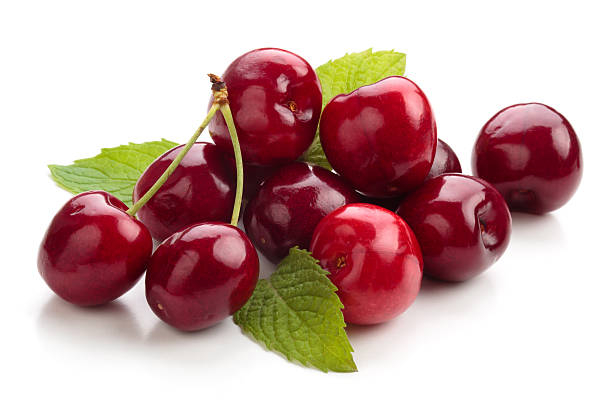
May improve sleep quality -
A few risk factors for cognitive decline and changes in brain health with aging are oxidative stress and chronic inflammation. Finding strategies to reduce these elements may allow you to maintain your brain healthy for a longer period of time. According to a 2019 study, consuming sour cherry juice on a regular basis may increase brain functions such as memory and learning.
Another study connected anthocyanins, a kind of antioxidant found in cherries, to better cognitive performance in dementia patients. The subjects' linguistic skills, short-term memory, and long-term memory improved after 12 weeks of consuming cherry juice daily.
Eating cherries may increase brain cell activity and reduce inflammation, according to research. This is due to the presence of 'anthocyanins', which are healthful plant components that accumulate in the brain following cherry eating. Anthocyanins are antioxidants and anti-inflammatory compounds that protect and maintain the function of brain cells.
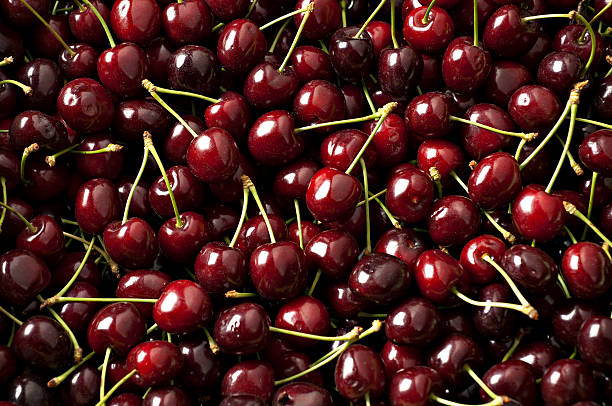
Boost mental health 
Boost mental health -
Cherries are high in antioxidants, some of which have anti-diabetic properties. According to DK Publishing's book 'Healing Foods', "Diabetes may benefit from tart cherries. Their rich antioxidant anthocyanins can stimulate insulin synthesis, assisting in blood sugar regulation". Anthocyanins are naturally present in cherries and are responsible for the fruit's brilliant red color. Blueberries, strawberries, and grapes are also high in anthocyanins. A study published in the Journal of Agricultural and Food Chemistry extracted various anthocyanins from cherries and tested them on rodent insulin-producing pancreatic cells. The researchers discovered that when exposed to anthocyanins, rodent cells increased insulin production by 50%.
Consume cherries that are in season, fresh, and organic. Canned kinds are frequently high in sugar, which might raise your blood glucose levels. Sour cherries have more antioxidants than other types of cherry. You may eat them on their own or with a bowl of oatmeal, cereal, or yogurt. Tossing them in salads and fruit chaat is another healthy and tasty option.

Help manage diabetes 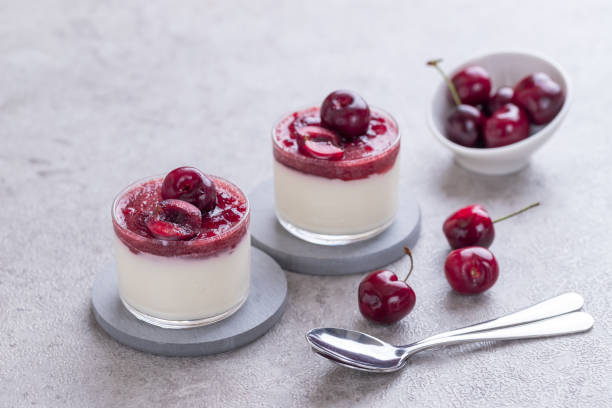
Help manage diabetes





























